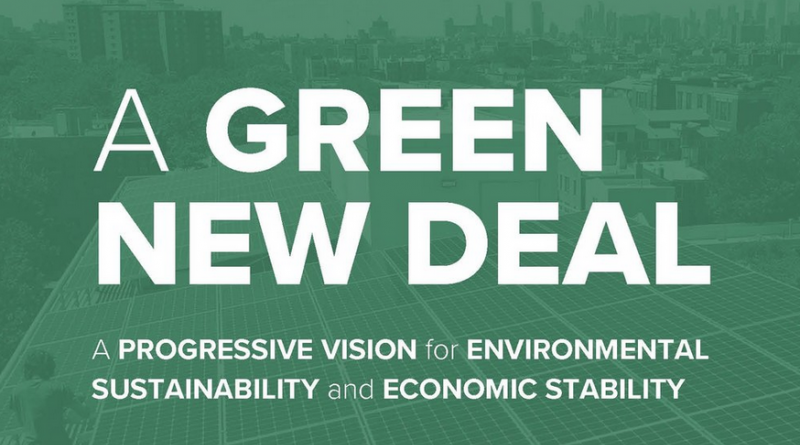A novel European Green New Deal to tackle climate change.

Support has been surging on both sides of the Atlantic for the idea of a Green New Deal. Time to turn it into action, and jobs, on the ground.
The huge increase in support for a Green New Deal in Europe and the United States has led many groups, old and new, to clamour for such an initiative. Pamphlets have been written, placards designed, marches planned, but there is often a lack of detailed policies. This brings with it the danger of turning the Green New Deal into the social equivalent of the physicists’ desired ‘theory of everything’.
That is why the UK Green New Deal Group has called on the government in London to adopt a ‘30 by 30’ target, which involves bringing forward its 2050 goal of zero net carbon emissions to 2030 and—crucial to achieving this—ensuring that the 28 million UK dwellings and 2 million commercial and public-sector buildingsare made energy-efficient by that date.
A huge advantage of such a climate-friendly infrastructure programme is the prioritisation of labour-intensive sectors, difficult to automate, which contribute to social and environmental sustainability. The jobs involved, many long-term and well-paid, will mostly be where the services are supplied, with associated business and investment opportunities in every community.
Local democracy could flourish, since enacting such a huge programme would require consultation and involvement of the workers and recipients. Providing employment in every constituency while tackling fuel poverty, it would be seen to benefit the majority and not just appeal to those for whom the environment is already their top concern.
The details of what such a programme could look like on the ground have been provided by the Energy Efficiency Infrastructure Group and E3G in their report, Affordable Warmth. Clean Growth. This calls not just for a comprehensive buildings energy-infrastructure programme but also a dedicated delivery agency to achieve major energy savings and decarbonise the UK heating supply. Achieving this goal will require adoption of high quality standards for retrofitting and constructing homes, area-based schemes led by local authorities, additional funding sources that won’t raise energy bills and financial incentives to encourage households to take up energy-saving measures.
A ‘300 by 30’ campaign
A similar EU wide approach could now be considered by all those calling for a European Green New Deal. A ‘300 by 30’ campaign would prioritise making all the continent’s roughly 300 million homes and other buildings energy-efficient and hence carbon-neutral by 2030. This would have a huge impact on the continent’s CO2 emissions, since this sector represents almost 40 per cent of final energy consumption.
Such a demand Europe-wide could put flesh on the pledge by the incoming European Commission president, Ursula von der Leyen, for a ‘green new deal’ within the first 100 days of her term, to cut the bloc’s emissions by 55 per cent by 2030. Better still, the UK and the rest of the EU will have a global platform to promote such a large-scale, transformational energy-infrastructure programme, if as expected the UK and Italy jointly host the United Nations climate conference at the end of next year in Glasgow.
It should not however just be activists, NGOs, local governments and doubtless the European Parliament calling for a Green New Deal at this event, which will attract global attention. Solid commitments of support should also come from the European Central Bank and the commission. Christine Lagarde starts directing the ECB in November. She is on record as wanting the bank to shift from climate-warming investments to green bonds and has welcomed von der Leyen’s support for a Green New Deal.
Were the ECB to start the massive green-bonds purchasing drive which could fund among other things a European ‘300 by 30’ initiative, that would go some way to countering the jibe that ‘if the planet were a bank, it would have been saved by now’.
8 October 2019
SOCIAL EUROPE




